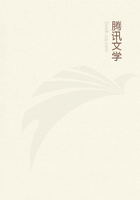
第4章 ITS ORIGIN AND SOURCES.(4)
It is remarkable further thatamong the tribal groups of which societywas primitively or anciently made upthe observance of good faith seemsto have been more strict than among individualsThere is some evidence ofwant of respect for sanctity of agreement among individualsbut not so amidtribesThe ancient monuments which are open to us no doubt generally recountvictories and defeatsbut they also record treatiesTreaties of great complexityand antiquity are found among the surviving savagesAlso we have a glimpseof systems of what would now be called International Lawthat is to sayof rules enforced with a regular ceremonial by trained official agentsSuchwas the jus fetiale of the RomansAnd it is to be noted that there are certaindepartments of this law in which stricter provision teeny to have been madethan were at the outset found in modern days in what is technically calledthe Law of Nationsfor examplethe extremely express and severe rules whichregulate declarations of war.
In modern days the name of International Law has been very much confinedto rules laid down by one particular class of writersThey may be roughlysaid to begin in the first half of the seventeenth centuryand to run threeparts through the eighteenth centuryThe names which most of us know arefirst of all that of the great Hugo Grotiusfollowed by PuffendorfLeibnitz,ZouchSeldenWolfBynkershoekand VattelThe list does not absolutelybegin with Grotiusnor does it exactly end with Vatteland indeed as regardsthe hither end of this series the assumption is still madeand I think notquite fortunatelythat the race of law-creating jurists still existsItis further to be noted that before international law fell into the handsof these writers it had like most other subjects of thought attracted theattention of the ChurchThere is a whole chapter of the law of nations whichis treated of by Roman Catholic theological writersand a slight differencewhich distinguishes their use of technical expressionssuch for exampleas 'law of natureand 'natural law,occasionally perplexes the studentof the system before us.
The ruleshoweverlaid down by the writers I have named and a few others,the nature of their systemand the degree in which it is settledwill occupymuch of our time in the present or future courses of lecturesIn the firstplace their system is that conventionally known as International Lawandsecondly in them we findnot only the writers at whom DrWhewell's impliedcondemnation is aimedbut the writers whose works acted on the spirit ofbelligerency like a charmwho did prevent wars and mitigate themand didsomething to prepare a time when war should be do moreI said somethinga few minutes ago of the erect of great agglomerations of countries in territorialempires in producing peaceWhen the Roman Empire had broken upafter awhile the new European world was long protected against incessant war byits surviving authorityIts very shadow gave as much peace as was to behadThe pope or the emperoreach a continuation of the Caesarsservedas a court of arbitration and did compose disputes and prevent warsToomuch influence must notI have to warn yoube attributed to their influence.
Their sphere was more particularly Italybut Ferrarian historian who haswritten both in Italian and Frenchand who has conceived the expedient ofmapping out Italian history into periods according to the nature of the revolutionswhich occurred in the Italian Stateshas counted among these states no lessthan 7,00revolutionseach with a war of its ownsmall or greatStillthe emperor and the popeand yet more the pope than the emperorwere unquestionably,on the wholemakers of peaceand sometimes the place of the pope was takenby a prince of acknowledged sanctitylike StLouis of FranceBut the outbreakof the great wars of religionthe wars between (Catholic and Protestant,put an end to these pacific influencesThe popeof coursewas necessarilyon one side among the combatantsand on the whole the emperor was on thesame sideHence it came about that the great international jurists belongedto the smaller states and were wholly ProtestantsThe International Lawof the Roman Catholic doctors had fallen into suspicion and finally intodisreputeA law with a new sanction was required if states were to obeyitand this is what the new jurists producedThe effect was a rapid mitigationof wars and a rapid decrease in their frequency.
It is very important that we should ask ourselves what is the true placein legal history of the set of rules called International LawIt will befound that the proper answer to this question involves replies to severalless general questions which are nowadays put by critical writersor whichspontaneously suggest themselves to the mind of the studentas to the natureand authority of the famous system before usWhatthenis its place inthe general development of European jurisprudenceWe may answer pretty confidentlythat its rapid advance to acceptance by civilised nations was a stagethougha very late stagein the diffusion of Roman Law over EuropeThose of youwho have paid any attention to the history of law are aware that I have nowtouched upon a subject of much interestand of some difficultyIn considerablyless than a centuryall the ideas of learned men on the history of RomanLaw in the western world have undergone changeA hundred years agothevirtually universal assumption of Juridical writers was thatwhen the pressureof invading barbarous races had broken up the territories of the Roman Empireinto separate kingdomsthe Roman Law was lostas the Empire itself wassupposed to have been lostIt was indeed plain thatif this were sotheRoman Law must in some way or otherand at some time or otherhave undergonea revivaland this was explained by fableslike the story of the discoveryof a copy of Justinian's Pandects at the siege of Amalfi.